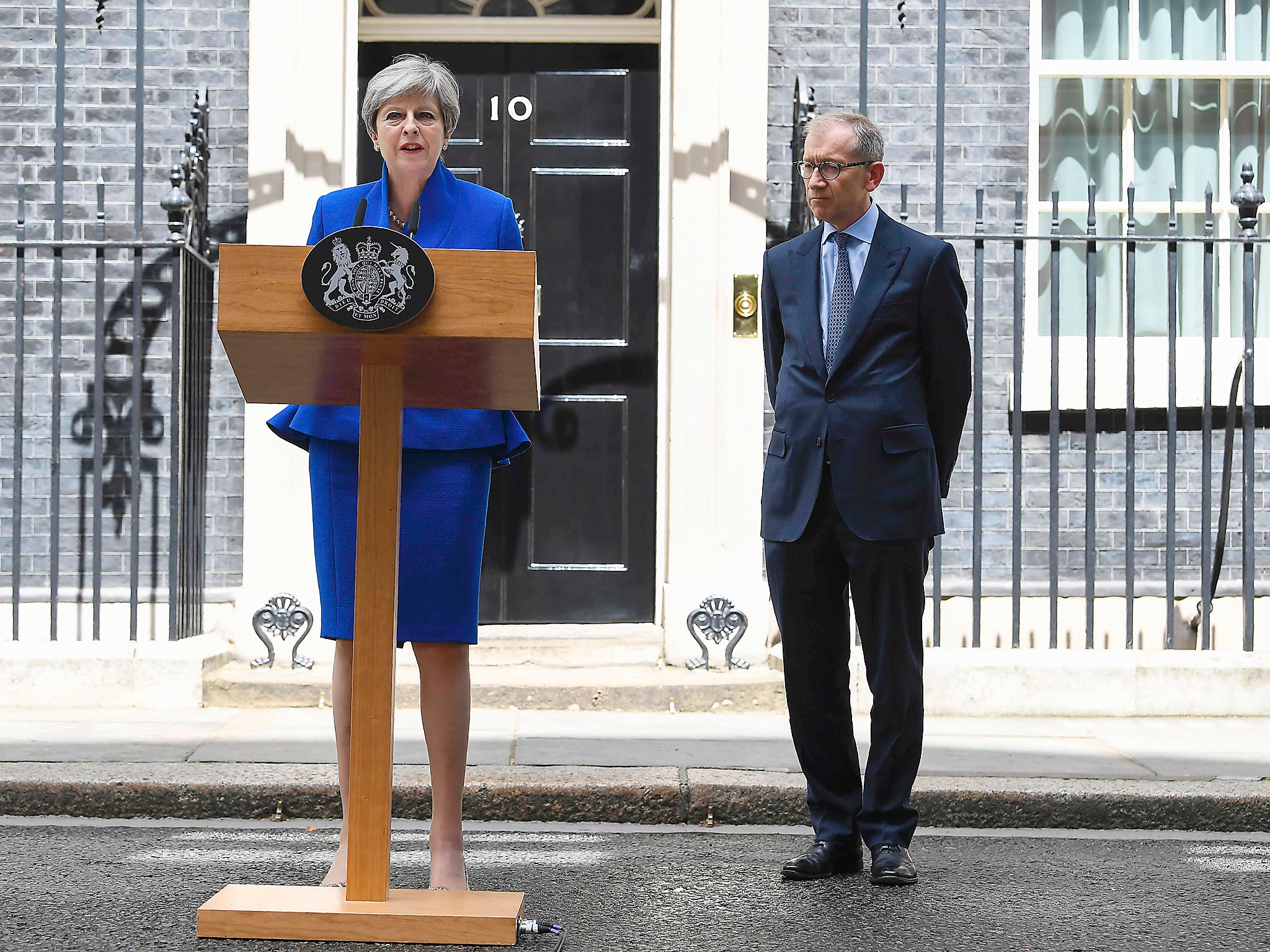Election 2017 live updates: Theresa May claims Conservative government supported by DUP will provide 'certainty'
The Independent will be bringing you all the live updates as the UK's next government is formed

Your support helps us to tell the story
From reproductive rights to climate change to Big Tech, The Independent is on the ground when the story is developing. Whether it's investigating the financials of Elon Musk's pro-Trump PAC or producing our latest documentary, 'The A Word', which shines a light on the American women fighting for reproductive rights, we know how important it is to parse out the facts from the messaging.
At such a critical moment in US history, we need reporters on the ground. Your donation allows us to keep sending journalists to speak to both sides of the story.
The Independent is trusted by Americans across the entire political spectrum. And unlike many other quality news outlets, we choose not to lock Americans out of our reporting and analysis with paywalls. We believe quality journalism should be available to everyone, paid for by those who can afford it.
Your support makes all the difference.Theresa May has said she will form a Conservative government backed by the DUP, claiming it can bring "certainty" to the UK.
After visiting the Queen, the Prime Minister claimed there was a "strong relationship" between the two parties, amid concern over the DUP's controversial anti-abortion and anti-LGBT policies.
The PM has also apologised to Conservatives who lost last night. She said: "I'm sorry for all those colleagues who lost their seats." She will "reflect on what we need to do in the future to take the party forward" after the result, she added.
The UK voted for a hung parliament after shock losses for the Conservatives in the 2017 general election. With 649 of 650 seats declared, the Tories had 318 seats - eight short of the figure needed to win outright - with Labour on 261, the SNP on 35 and Liberal Democrats on 12.
Jeremy Corbyn's party increase its share of the vote by 9.6 per cent, while the Tories were up 5.5 per cent, the Liberal Democrats, Greens and SNP saw small loses and Ukip's vote collapsed.
The live blog has now ended
Politicians, voters, and even their pets have been heading to polling stations and are posing for the cameras at every opportunity.
The Prime Minister has made clear that she would rely on the support of the Democratic Unionist Party in order to get her programme through Parliament, despite concern over its stance on issues including equal marriage, abortion and climate change.
Making no allusion to losses suffered by the Conservatives, Ms May said she intended to press ahead with her plans for Brexit.
She faced calls from within her own party to consider her own position after the election, which she brought forward by three years in the hope it would deliver an increased majority in the Commons.
Jeremy Corbyn urged her to resign and allow him to form a minority administration, declaring: “We are ready to serve this country.”
But, after intensive talks with the DUP, the Prime Minister instead drove the short distance to Buckingham Palace to ask the Queen for permission to form a new government.
The final election results came in late on Friday, after Kensington finally declared a Labour win — with a tiny 20-vote majority. They were:
David Dimbleby just ran through the names of senior Tory ministers who have refused to be interviewed on the BBC: Philip Hammond, David Davis, Boris Johnson.
Mark Haefele, from Swiss bank UBS’s wealth management arm, is trying to make sense of it all in a research note published just now, business editor Josie Cox writes.
“Brexit talks are now likely to be even more unsettling for markets, and the prospect of another election raises the risk of a delay, potentially leaving the UK without a negotiated exit settlement. Although we believe the pound had already priced in much of "hard Brexit" risk before this vote, the currency will continue to experience volatility through the Governmental and Brexit talks,” he writes.
He says that he is still “underweight” UK stocks versus Eurozone stocks.
“Higher political uncertainty is likely to more than offset any benefit from a marginally weaker pound, and we expect the earnings of UK companies to slow relative to those of Eurozone companies,” he writes.

Join our commenting forum
Join thought-provoking conversations, follow other Independent readers and see their replies
Comments